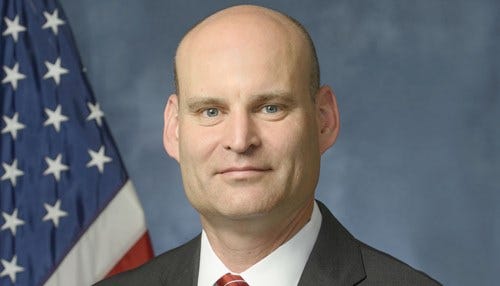Ensuring Safety At Your Big Events

Subscriber Benefit
As a subscriber you can listen to articles at work, in the car, or while you work out. Subscribe NowCompanies, schools, and community organizations put a great deal of thought and planning into large-scale events. It’s important that they also concentrate on protecting the safety of attendees.
Whether it’s a big celebration for employees, a holiday festival in a park, or an athletic tournament at a school, events bring large groups of people into a small area for a set amount of time. In the past, thoughts about security were focused more on dealing with someone who might become intoxicated and disruptive, or someone who might need medical attention.
High-profile criminal acts such as the mass shooting in Las Vegas and terrorist acts in Europe have created new concerns for event planners and first responders alike. While the likelihood of your event becoming the site of a terrorist act is quite remote, it’s prudent to include basic security considerations in your planning.
One of the most important and often-neglected elements of security is a clear designation of who’s in charge. Someone with the authority to make decisions should be on hand to respond to any situations that come up. School principals are accustomed to handling a never-ending series of unexpected situations, and students, teachers, and parents alike instinctively turn to the principal for answers. Having some kind of leader and a chain of command in place allows for faster resolution of situations.
Controlling who attends the event is important. Simply put, you don’t want people who are there for the wrong reasons. One reason to have a reception table and name tags is to be able to track who is at the event, and to immediately identify anyone who hasn’t been invited. If you’re holding a corporate celebration and that guy who was fired six months ago shows up, he’s probably not there to congratulate the CEO.
One of the most valuable kinds of security is the type that deters people from acting badly, and a great example of that is the presence of uniformed law enforcement or security officers as attendees arrive. People with mischief on their mind are far less likely to act out when they know that someone who can and will put a stop to their behavior is on hand. At a school event such as a large concert or sporting event, the visible presence of school administrators has a similar effect. Essentially, you’re creating a layer of protection.
Whether you use security or some other kind of official, they should do more than just stand there. They can interact with the attendees, but their primary responsibility is to watch people for signs that are out of the ordinary. If it’s a summer event and someone arrives in a long coat, that may create some concern. If someone is visibly angry or extraordinarily nervous and refusing to make eye contact, it’s a good idea to check up on them. Asking a simple question such as “May I help you?” or “Are you all right?” can provide insight into whether additional action is needed.
Think about the potential situations you might encounter and what steps you’d need to take. For example, if you’re having a business function at which alcohol was being served, what would you do if a guest became intoxicated and belligerent? If you have people serving in a security role, they should probably escort that person out of the event, but where should they take him or her? If someone suffers a serious illness such as a heart attack, will paramedics have clear access? Does the facility have emergency defibrillators?
Finally, consider what you’ll do if there’s a fire, a power failure, a severe storm, or some other kind of situation that may warrant an evacuation. Not only do you want to have a plan for getting people out of the building or to a safe spot promptly, but you also want to make sure they’re not taken to a location where they may interfere with those who respond. If firefighters can’t get into the building quickly because the crowd is milling around in front of the entrances, damage can escalate.
Some people might think this level of planning borders on paranoia, but it doesn’t. People planning events typically go to great lengths to ensure that the décor is perfect, the catering fits the tastes of the attendees, and the entertainment has access to all the electrical outlets needed. Making sure your guests will be safe is just one more example, and it’s one that probably doesn’t require as much effort.
Paul Dvorak is a member of the advisory board for Danville-based SafeVisitor and a longtime agent with the U.S. Secret Service.
